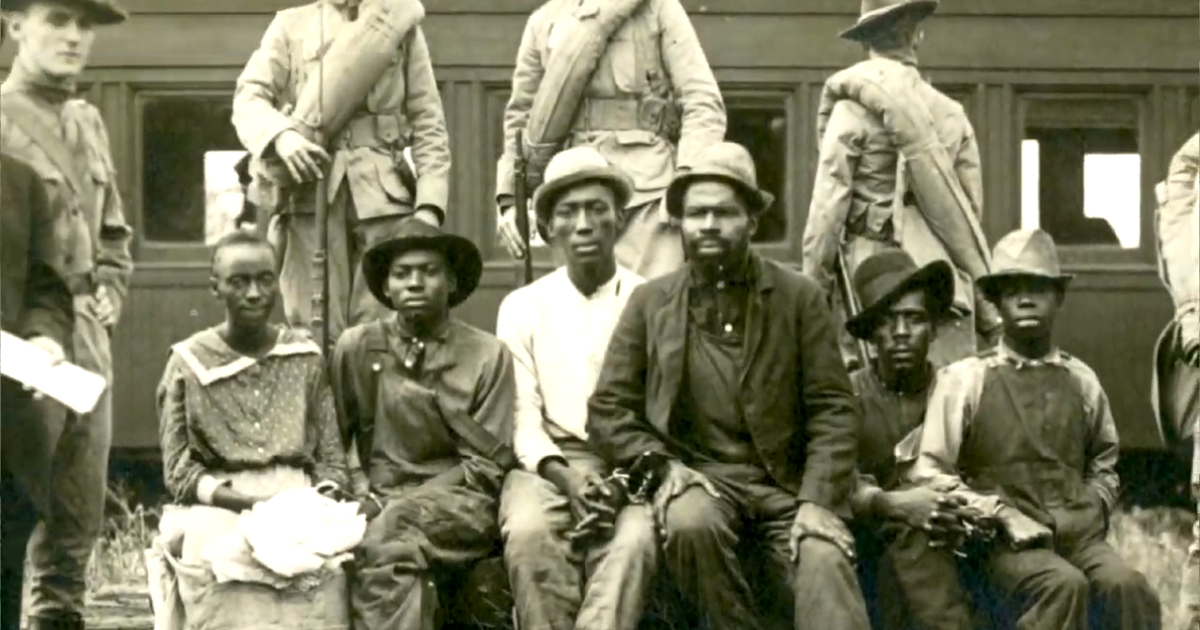Rosa Parks' legacy
The death of Rosa Parks underscores that the generation responsible for the key victories of the U.S. civil rights movement is fading into history, leaving its survivors with the challenge of keeping the movement's memory and work alive even as today's youth often seem disengaged.
"As people get older and people pass, it becomes more and more difficult to have that sort of firsthand knowledge" of the fight for integration, said U.S. Rep. John Lewis, a Georgia Democrat who first met Parks as a 17-year-old student and activist. "It becomes a little more difficult to pass it on."
Lewis, who once headed the Student Nonviolent Coordinating Committee, added that the social challenges of today -- persistent racial gaps in poverty, education and wealth, among others -- highlight the continued need for activists and teachers to honor Parks' spirit.
"Her life should inspire a generation yet unborn to stand up," he said.
CBS News correspondent Byron Pitts reports that from the Alabama statehouse, where the flag now flies at half staff in her honor, to the Michigan museum that houses the infamous bus on which she refused to give up her seat, people remembered a woman who didn't just make history (video) -- she changed it.
"We lost a wonderful human being that stood for everyone here, not just black and white, but everyone," Cherie Eaton told Pitts.
Parks is one of a handful of civil rights figures, along with Martin Luther King Jr. and Malcolm X, whose name most young people seem to know.
But many are more familiar with "Rosa Parks," the hit song by the hip-hop group OutKast, than her full story, said Renada Johnson, a 25-year-old graduate student at Bowie State University in Maryland, who met Parks in 1997.
"Young people definitely know who she was, but all we were taught in school was that she didn't get up because her feet were hurting," Johnson said. "They don't know her whole story."
President Bush praised Rosa Parks on Tuesday as "one of the most inspiring women of the 20th century."
"She will always have a special place in American history, and our nation thinks of Rosa Parks and her loved ones today," Mr. Bush said.
In 1955, Parks was a seamstress and longtime secretary for the local NAACP who defied segregation laws and refused to give up her seat in a whites-only section of a public bus in Montgomery, Alabama.
Then 42, she inspired tens of thousands of working-class blacks -- led by King -- to boycott the local buses for more than a year. Finally, the Supreme Court upheld a lower court ruling that declared Montgomery's segregated seating laws unconstitutional. The effort highlighted persistent bias against blacks across the nation.
After she died Monday at age 92, Parks was remembered as a quiet woman of steely resolve, whose simple act helped spark the biggest movement for social change in American history.
"But that was 50 years ago," said Bruce Gordon, president of the National Association for the Advancement of Colored People. "A lot has changed in 50 years."
Many young people either don't know civil rights history or don't know why it matters, he said. Parks, who worked to educate youth about the struggle of black people, once chuckled that children sometimes asked her if she knew Sojourner Truth and Harriet Tubman, former slaves who lived generations before her.
And now with the median age of African-Americans at 30, according to the Census Bureau, more than half of the nation's black community was born after the end of legally sanctioned racial discrimination.
Parents who were active in the movement say they sense a disconnect when speaking with their children.
"I remember my son once said to me, 'Why did you sit in the back of the bus? Why didn't you just go up front?' I said 'I didn't want to get killed,"' said Earl G. Graves Sr., 70, publisher of Black Enterprise Magazine. "He looked at me and blinked."
"Young people have to be reignited," he added.
Said Gordon: "It ought to renew in people the recognition that individual actions make a difference."
Lewis lamented that, in the last month, several women civil rights pioneers have died: C. Delores Tucker, the first black women to be Pennsylvania's secretary of state; Constance Baker Motley, the first black and the first woman to serve as a federal judge in the southern district of New York; and Vivian Malone Jones, who defied Alabama Gov. George Wallace as one of the first black students to enroll at the University of Alabama in 1963.
"And now Rosa Parks," he said. "It's so important for people to tell their stories over and over again."
Johnson, who teaches black history to teenagers in the Washington, D.C. area, agreed.
"We use history as our guide to help young people make better choices and better decisions," she said. Working with the Kiamsha Youth Empowerment program in Prince George's County, Md., Johnson links Parks' self-respect with choices young people today can make -- to stay away from drugs and alcohol, for instance.
"You won't understand where you're going until you know where you've been," she said.



